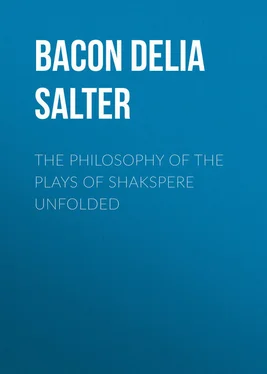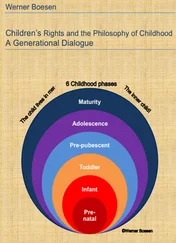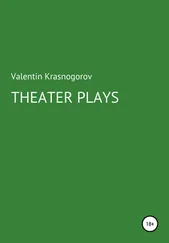Delia Bacon - The Philosophy of the Plays of Shakspere Unfolded
Здесь есть возможность читать онлайн «Delia Bacon - The Philosophy of the Plays of Shakspere Unfolded» — ознакомительный отрывок электронной книги совершенно бесплатно, а после прочтения отрывка купить полную версию. В некоторых случаях можно слушать аудио, скачать через торрент в формате fb2 и присутствует краткое содержание. Жанр: literature_19, foreign_antique, foreign_prose, на английском языке. Описание произведения, (предисловие) а так же отзывы посетителей доступны на портале библиотеки ЛибКат.
- Название:The Philosophy of the Plays of Shakspere Unfolded
- Автор:
- Жанр:
- Год:неизвестен
- ISBN:нет данных
- Рейтинг книги:3 / 5. Голосов: 1
-
Избранное:Добавить в избранное
- Отзывы:
-
Ваша оценка:
- 60
- 1
- 2
- 3
- 4
- 5
The Philosophy of the Plays of Shakspere Unfolded: краткое содержание, описание и аннотация
Предлагаем к чтению аннотацию, описание, краткое содержание или предисловие (зависит от того, что написал сам автор книги «The Philosophy of the Plays of Shakspere Unfolded»). Если вы не нашли необходимую информацию о книге — напишите в комментариях, мы постараемся отыскать её.
The Philosophy of the Plays of Shakspere Unfolded — читать онлайн ознакомительный отрывок
Ниже представлен текст книги, разбитый по страницам. Система сохранения места последней прочитанной страницы, позволяет с удобством читать онлайн бесплатно книгу «The Philosophy of the Plays of Shakspere Unfolded», без необходимости каждый раз заново искать на чём Вы остановились. Поставьте закладку, и сможете в любой момент перейти на страницу, на которой закончили чтение.
Интервал:
Закладка:
Science is the word that unlocks the books of this School, its gravest and its lightest, its books of loquacious prose and stately allegory, and its Book of Sports and Riddles. Science is the clue that still threads them, that never breaks, in all their departures from the decorums of literature, in their lowest descents from the refinements of society. The vulgarity is not the vulgarity of the vulgar – the inelegancy is not the spontaneous rudeness of the ill-bred – any more than its doctrine of nature is the doctrine of the unlearned. The loftiest refinements of letters, the courtliest breeding, the most exquisite conventionalities, the most regal dignities of nature, are always present in these works, to measure these abysses, flowering to their brink. Man as he is, booked, surveyed, – surveyed from the continent of nature, put down as he is in her book of kinds, not as he is from his own interior isolated conceptions only, – the universal powers and causes as they are developed in him, in his untaught affections, in his utmost sensuous darkness, – the universal principle instanced whereit is most buried, the cause in nature found; – man as he is, in his heights and in his depths, 'from his lowest note to the top of his key,' – man in his possibilities, in his actualities, in his thought, in his speech, in his book language, and in his every-day words, in his loftiest lyric tongue, in his lowest pit of play-house degradation, searched out, explained, interpreted. That is the key to the books of this Academe, who carry always on their armour, visible to those who have learned their secret, but hid under the symbol of their double worship, the device of the Hunters, – the symbol of the twin-gods, – the silver bow, or the bow that finds all. 'Seeing that she beareth two persons … I do also otherwise shadow her.'
It is man's life, and the culture of it, erected into an art or science, that these books contain. In the lowness of the lowest, and in the aspiration of the noblest, the powers whose entire history must make the basis of a successful morality and policy are found. It is all abstracted or drawn into contemplation, 'that the precepts of cure and culture may be more rightly concluded.' 'For that which in speculative philosophy corresponds to the cause, in practical philosophy becomes the rule.'
It is not necessary to illustrate this criticism in this case, because in this case the design looks through the execution everywhere. The criticism of the Novum Organum, the criticism of the Advancement of Learning, and the criticism of Raleigh's History of the World, than which there is none finer, when once you penetrate its crust of profound erudition, is here on the surface. And the scholasticism is not more obtrusive here, the learned sock is not more ostentatiously paraded, than in some critical places in those performances; while the humour that underlies the erudition issues from a depth of learning not less profound.
As, for instance, in this burlesque of the descent of Euphuism to the prosaic detail of the human conditions, not then accommodated with a style in literature, a defect in learning which this Academy proposed to remedy. A new department in literature which began with a series of papers issued from this establishment, has since undertaken to cover the ground here indicated, the every-day human life, and reduce it to written inquiry, notwithstanding 'the lowness of the matter.'
King [ reads ], 'Great deputy, the welkin's vicegerent, and sole dominator of Navarre, my soul's earth's god, and body's fostering patron… So it is, – besieged with sable-coloured melancholy, I did commend the black, oppressing humour to the most wholesome physick of thy health-giving air, and, as I am a gentleman, betook myself to walk. The time when? About the sixth hour: when beasts most graze, birds best peck, and men sit down to that nourishment which is called supper.'
[No one who is much acquainted with the style of the author of this letter ought to have any difficulty in identifying him here. There was a method of dramatic composition in use then, and not in this dramatic company only, which produced an amalgamation of styles. 'On a forgotten matter,' these associated authors themselves, perhaps, could not always 'make distinction of their hands.' But there are places where Raleigh's share in this 'cry of players' shows through very palpably.]
'So much for the time when . Now for the ground which ; which I mean I walked upon: it is ycleped thy park. Then for the place where; where I mean I did encounter that obscene and most preposterous event, that draweth from my snow-white pen the ebon-coloured ink, which here thou beholdest, surveyest, or seest, etc…
'Thine in all compliments of devoted and heart-burning heat of duty.
And in another letter from the same source, the dramatic criticism on that style of literature which it was the intention of this School 'to reform altogether' is thus continued.
… 'The magnanimous and most illustrate King Cophetua , set eye upon the pernicious and indubitate beggar Zenelophon . And it was he that might rightly say, Veni, vidi, vici ; which to anatomise in the vulgar, ( O base and obscure vulgar !) Videlicet , he came, saw, and overcame… Who came? the king. Why did he come? to see. Why did he see? to overcome. To whom came he? to the beggar. What saw he? the beggar. Who overcame he? the beggar. The conclusion is victory. On whose side? etc.
'Thine in the dearest design of industry.'
[Dramatic comment.]
_Boyet. I am much deceived but I remember the style.
Princess . Else your memory is bad going o'er it erewhile._
Jaquenetta . Good Master Parson, be so good as to read me this letter – it was sent me from Don Armatho : I beseech you to read it.
Holofernes . [Speaking here, however, not in character but for 'the Academe .'] Fauste precor gelida quando pecus omne sub umbra Ruminat , and so forth. Ah, good old Mantuan! I may speak of thee as the traveller doth of Venice
– Vinegia, Vinegia,
Chi non te vede, ei non te pregia.
Old Mantuan! Old Mantuan! Who understandeth thee not, loves thee not. – Ut re sol la mi fa. – Under pardon , Sir, what are THE CONTENTS? or, rather, as Horace says in his – What, my soul, verses ?
Nath . Ay, Sir, and very learned [one would say so upon examination ].
Hol . Let me have a staff , a stanza, a verse; Lege Domine .
Nath . [Reads the 'verses.'] – 'If love make me forsworn,' etc.
Hol . You find not the apostrophe , and so – miss the accent – [criticising the reading. It is necessary to find the apostrophe in the verses of this Academy, before you can give the accent correctly; there are other points which require to be noted also, in this refined courtier's writings, as this criticism will inform us]. Let me supervise the canzonet. Here are only numbers ratified, but for the elegancy, facility, and golden cadency of poesy, caret . Ovidius Naso was the man. And why , indeed, Naso; but for smelling out the odoriferous flowers of fancy , the jerks of invention . Imitari is nothing; so doth the hound his master, the ape his keeper, the tired horse his rider. [It was no such reading and writing as that which this Academy was going to countenance, or teach.] But, Damosella, was this directed to you?
Jaq . Ay, Sir, from one Monsieur Biron, one of the strange queen's lords.
Читать дальшеИнтервал:
Закладка:
Похожие книги на «The Philosophy of the Plays of Shakspere Unfolded»
Представляем Вашему вниманию похожие книги на «The Philosophy of the Plays of Shakspere Unfolded» списком для выбора. Мы отобрали схожую по названию и смыслу литературу в надежде предоставить читателям больше вариантов отыскать новые, интересные, ещё непрочитанные произведения.
Обсуждение, отзывы о книге «The Philosophy of the Plays of Shakspere Unfolded» и просто собственные мнения читателей. Оставьте ваши комментарии, напишите, что Вы думаете о произведении, его смысле или главных героях. Укажите что конкретно понравилось, а что нет, и почему Вы так считаете.












